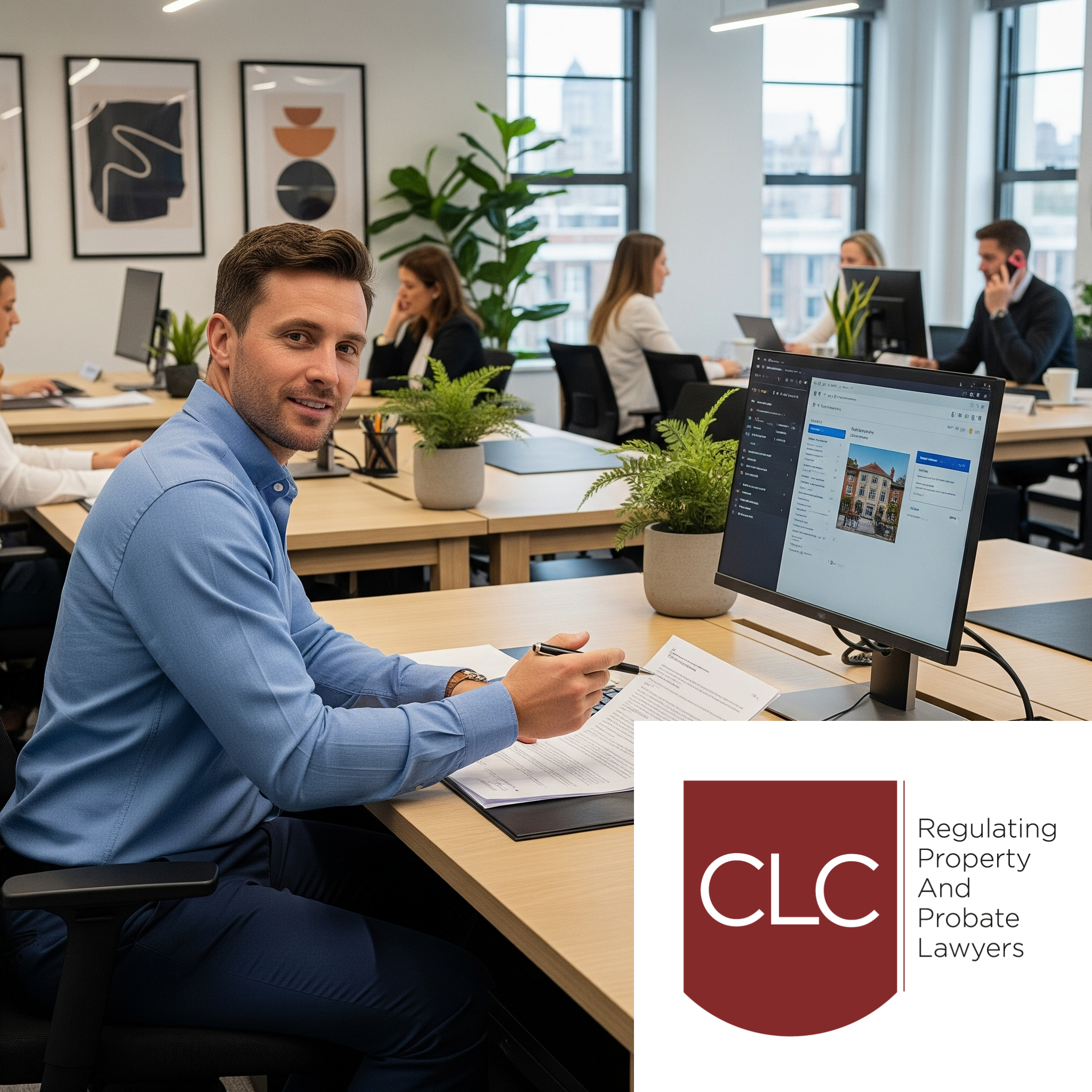Why Now is the Best Time to Get Your Conveyancing Qualification (and Start a Conveyancing Course!)
Licensed Conveyancers are qualified, professional property lawyers who specialise in the legal aspects surrounding buying and selling property in England and Wales.
Published: 21 June 2025
Are you eyeing a career with stability, intellectual challenge, and direct impact in the UK's dynamic property sector? As we navigate mid-2025, with global economic shifts and rapid technological advancements, the decision to pursue a conveyancing qualification has never been more strategically sound. Now is unequivocally the opportune moment to enrol in a dedicated conveyancing course and secure your future as a vital legal professional.
Here’s why the current climate makes your investment in a conveyancing qualification an exceptionally wise choice.

1. The UK Property Market: Resilient, Active, and Government-Backed Growth
Despite the undulating global economic landscape, the UK property market continues to demonstrate remarkable resilience and activity. Recent data for Q1 2025 shows modest house price growth and a significant increase in residential property transactions (up almost 30% year-on-year in Jan-Apr 2025 for the UK). This buoyancy, supported by gradually easing mortgage rates and improved buyer confidence, underscores a stable environment for conveyancing professionals.
- Government Initiatives: The government is actively working to support home ownership, ensuring a continuous stream of work for conveyancers. Policies like the permanent Mortgage Guarantee Scheme help first-time buyers with smaller deposits. Schemes such as Shared Ownership and First Homes continue to make homeownership more accessible. Furthermore, significant reforms like the Leasehold and Freehold Reform Act 2024 are enhancing transparency and protections for leaseholders, leading to ongoing legal work as changes are implemented and understood. These policies underline a clear commitment to fostering a vibrant property market.
- Consistent Demand: Regardless of market peaks or troughs, the legal process of transferring property is always required. Your conveyancing qualification makes you an indispensable part of this fundamental economic activity.
2. A Direct, Efficient Path to an In-Demand Conveyancing Qualification
The Council for Licensed Conveyancers (CLC) route offers a highly focused and time-efficient pathway to becoming a qualified property lawyer. In an era where efficiency and specialisation are prized, embarking on a dedicated conveyancing course sets you apart.
- Streamlined Education: Unlike broader legal qualifications that can take 5-7 years, a full conveyancing qualification via the CLC route typically takes 2.5 to 4 years, combining academic study with practical experience. This means less time studying and more time working in your chosen field.
- Flexible Learning: Many accredited conveyancing course providers offer online and part-time study options. This flexibility allows you to balance your learning with existing work commitments, meaning you can often earn while you gain your conveyancing qualification, easing financial pressures during your training.
Level 4 Diploma
Conveyancing Law & Practice
3. AI: A Powerful Ally, Not a Replacement, for Conveyancers
The "dawn of AI" is undoubtedly upon us, transforming industries worldwide. In the legal sector, AI is rapidly automating repetitive tasks, but this is a boon, not a threat, to the human conveyancer.
- Automation of Routine Tasks: AI tools are becoming adept at tasks such as document review, data extraction, initial risk assessments, and answering basic client queries via chatbots. This means that once you've completed your conveyancing course, you'll likely enter a profession where the most mundane and time-consuming administrative duties are handled by technology.
- The Indispensable Human Element: AI cannot replicate the critical human elements of conveyancing:
- Complex Problem-Solving: Every property transaction has nuances, unexpected issues, and human complexities that require a conveyancer's nuanced judgment, empathy, and creative problem-solving.
- Client Relationship Management: Clients need reassurance, clear communication, and tailored advice during what is often the largest financial transaction of their lives. AI lacks the emotional intelligence and ability to build the trust essential for this role.
- Ethical Oversight & Accountability: Legal regulators (including the CLC) are clear: while AI can assist, the ultimate accountability for advice and outcomes rests with the human professional. Your conveyancing qualification ensures you have the ethical grounding and professional judgment that AI cannot provide.
- Enhanced Efficiency: Rather than taking over roles, AI empowers conveyancers. By offloading administrative burdens, AI allows qualified professionals to focus on higher-value work, complex legal analysis, and client-centric activities, making the job more satisfying and efficient. Your conveyancing course will prepare you to leverage these new tools.
Level 6 Diploma
Conveyancing Law & Practice
4. Strong Earning Potential and Resilience in a Dynamic Economy
Even with global economic uncertainties and varying inflation rates, the specialised nature of a conveyancing qualification offers significant earning potential and career resilience.
- Specialised Expertise: As a Licensed Conveyancer, you possess niche expertise that is always in demand within the property sector, making you a highly valued asset to firms.
- Career Progression: With your conveyancing qualification, the path is clear for advancement – from junior roles to senior positions, team leadership, or even establishing your own practice. This progression offers increasing earning potential and professional autonomy.
Don't Delay: Invest in Your Conveyancing Qualification Today!
The current climate presents a unique window of opportunity. The UK property market is robust, government policies support sustained activity, and the integration of AI is set to enhance, not diminish, the role of the human conveyancer. By embarking on a conveyancing course now, you're not just gaining a qualification; you're securing a future in a profession that is vital, adaptable, and deeply rewarding. Take the decisive step and position yourself for success in property law!
Level 4 Diploma
Conveyancing Law & Practice
Level 6 Diploma
Conveyancing Law & Practice
More related posts

Become a Property Lawyer (No Law Degree Needed!)

How Long Does It Take to Become a Licensed Conveyancer?











